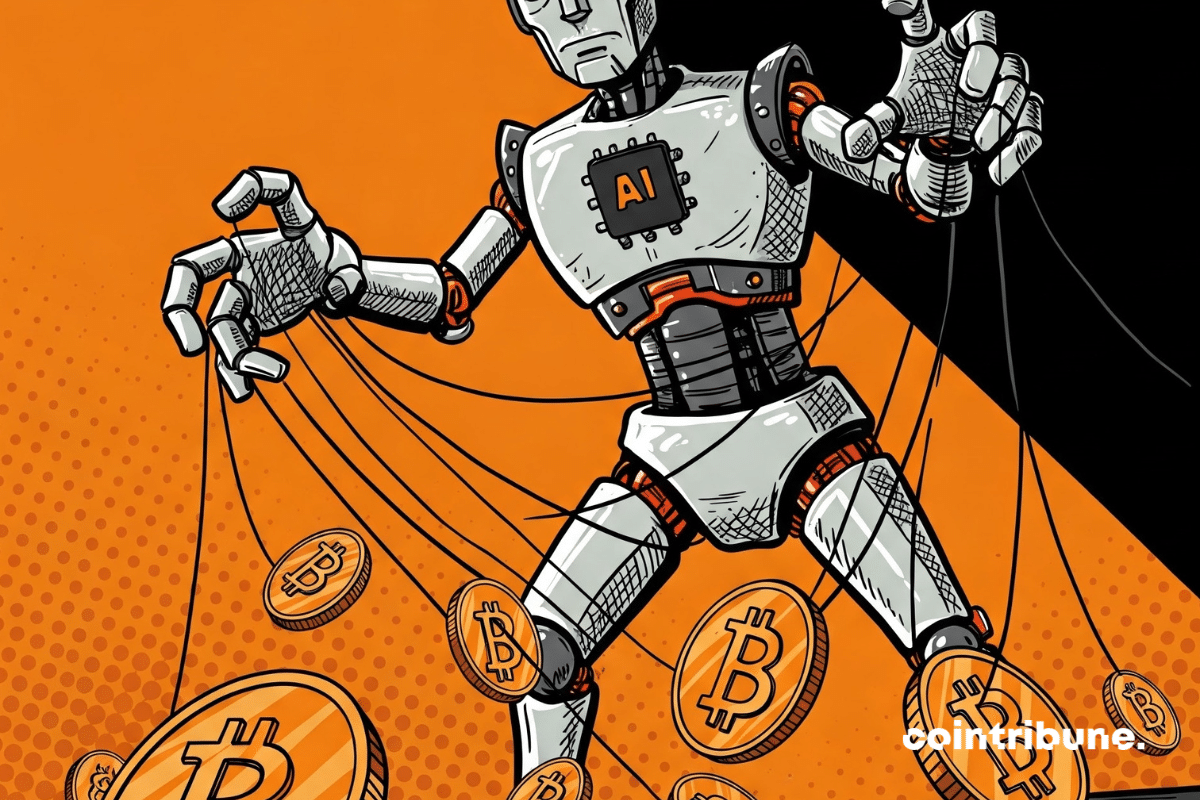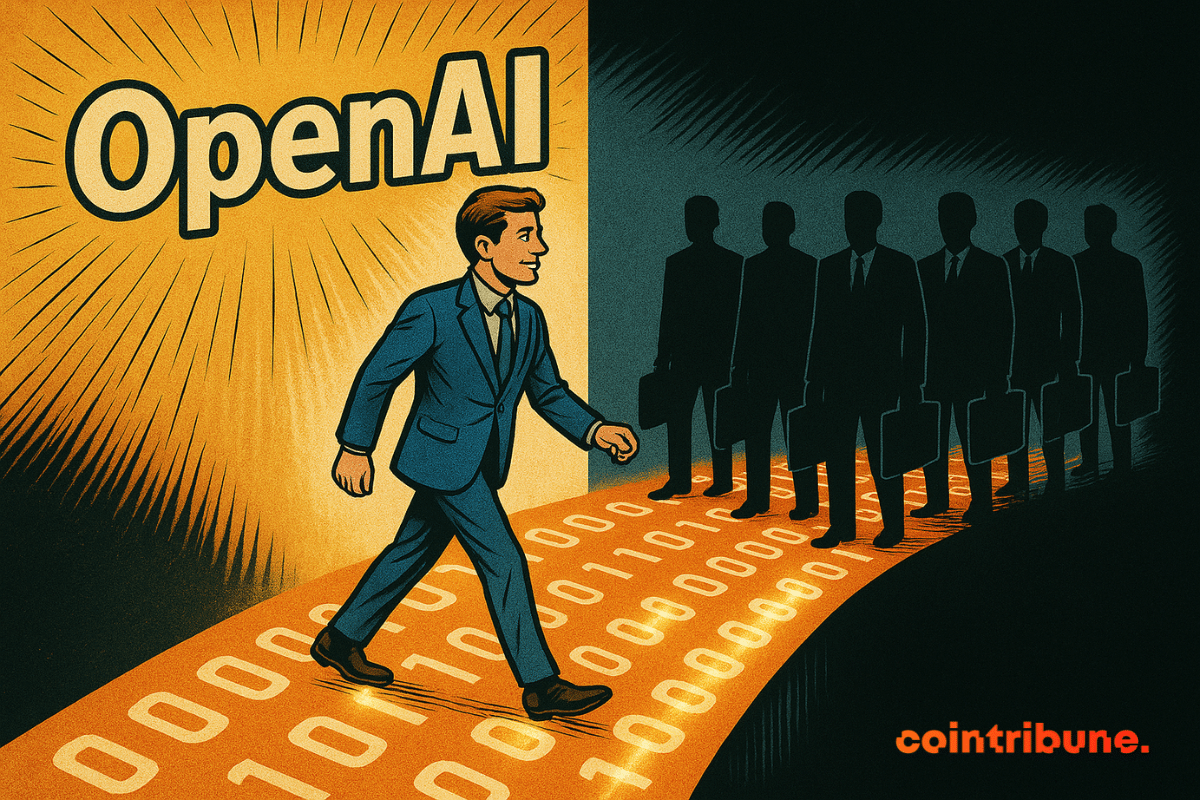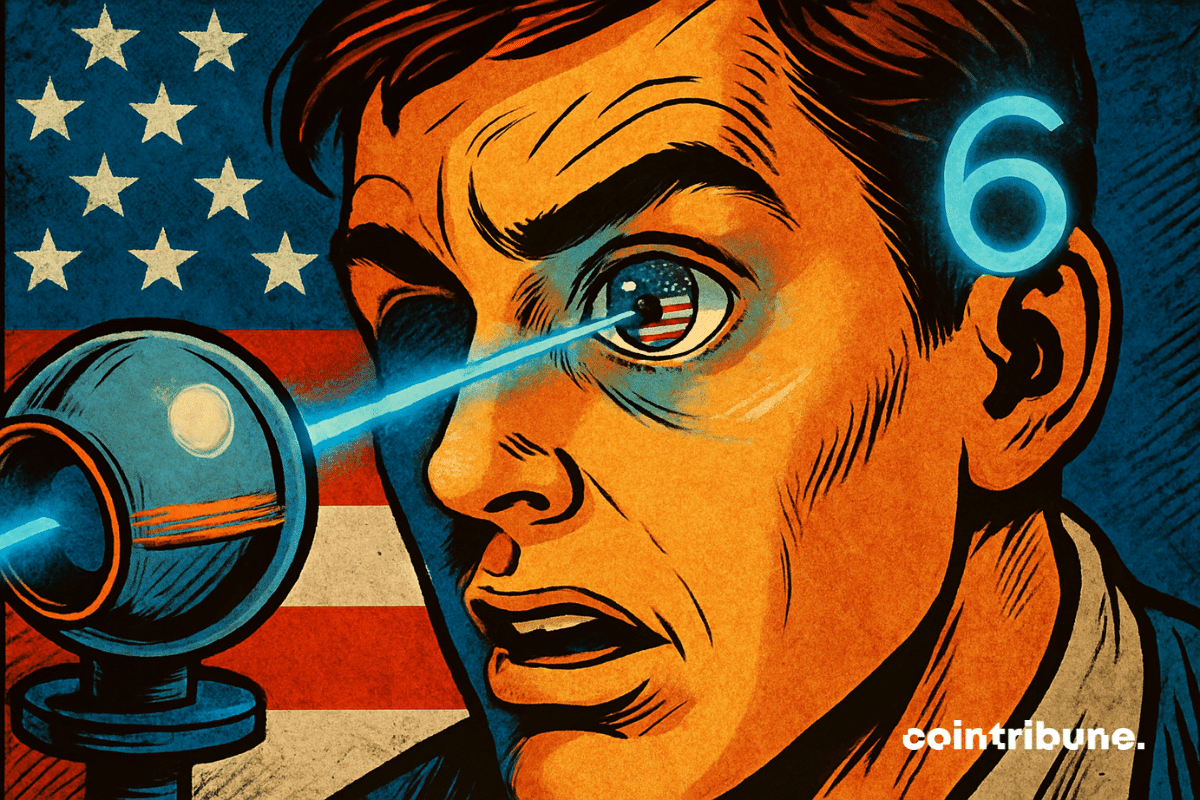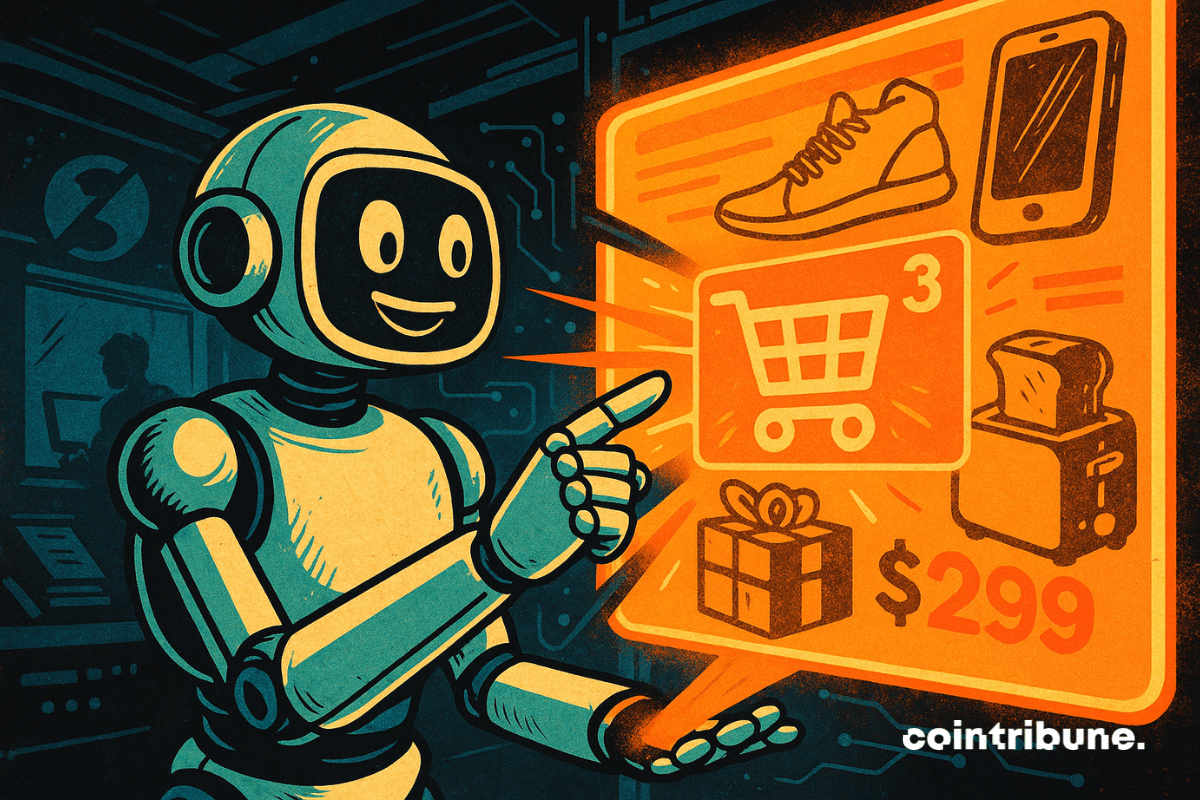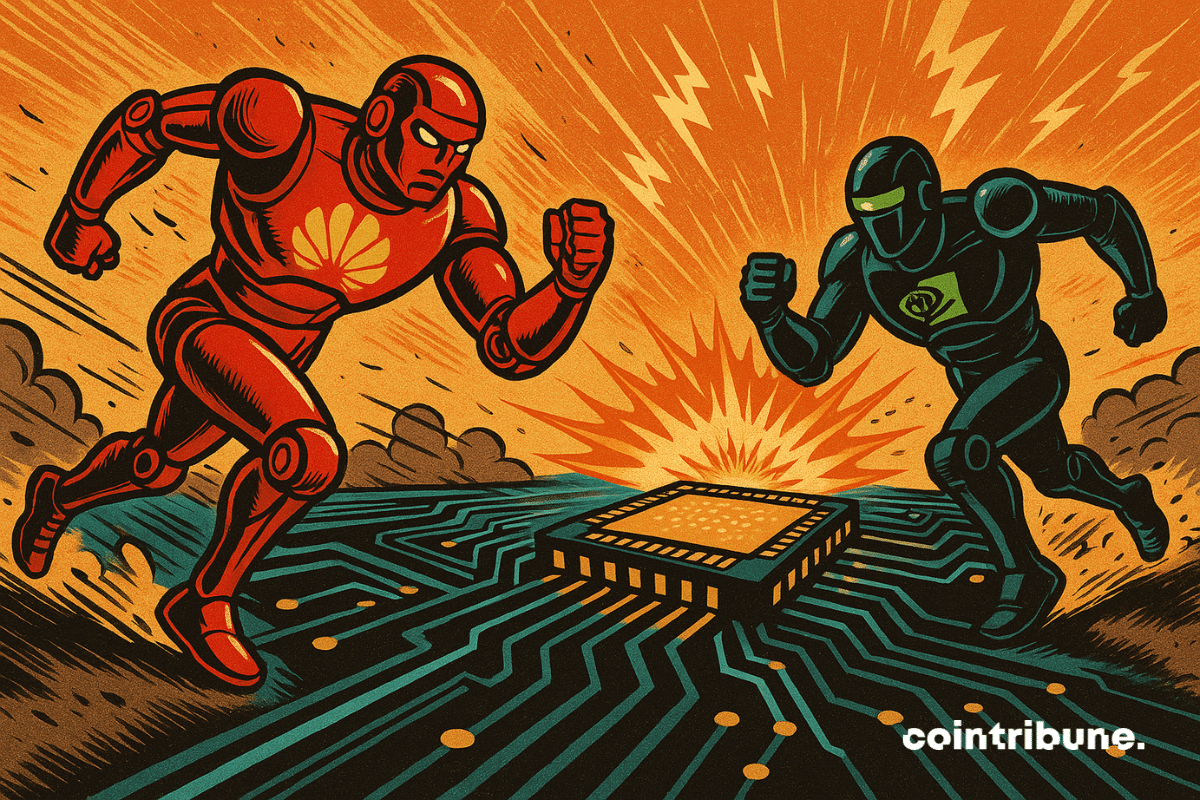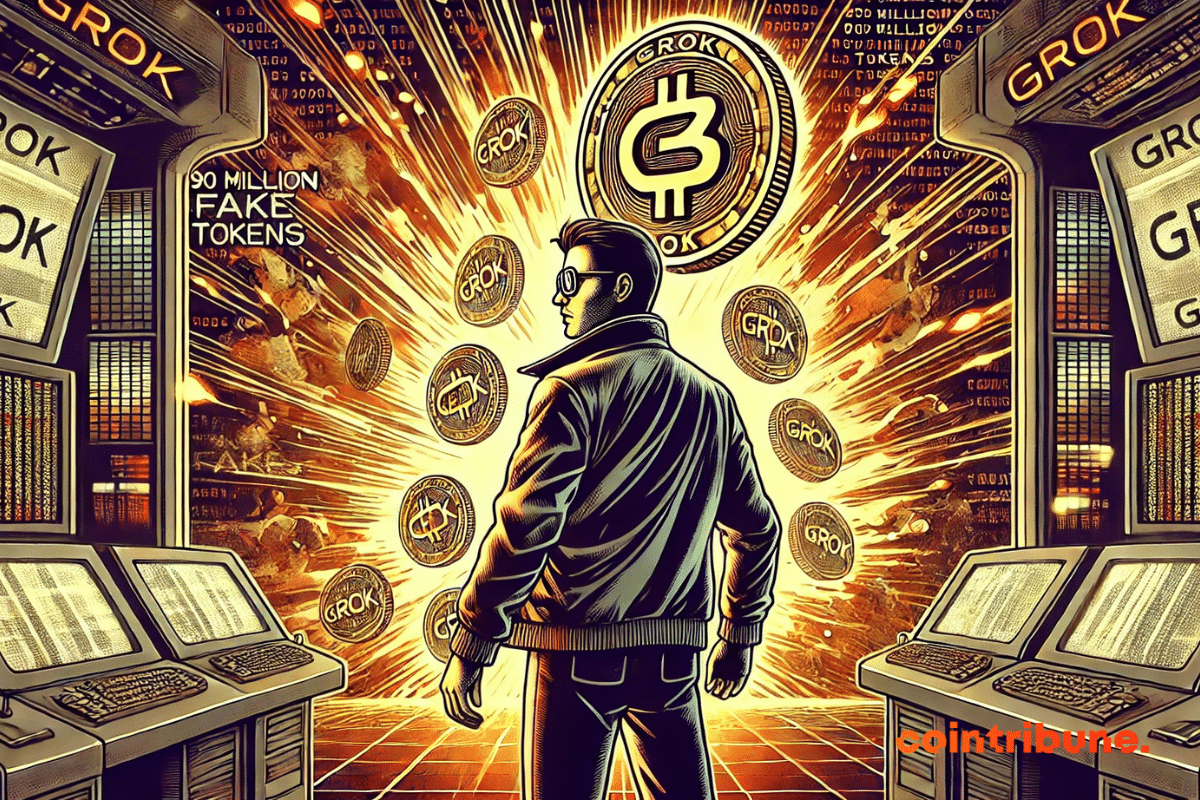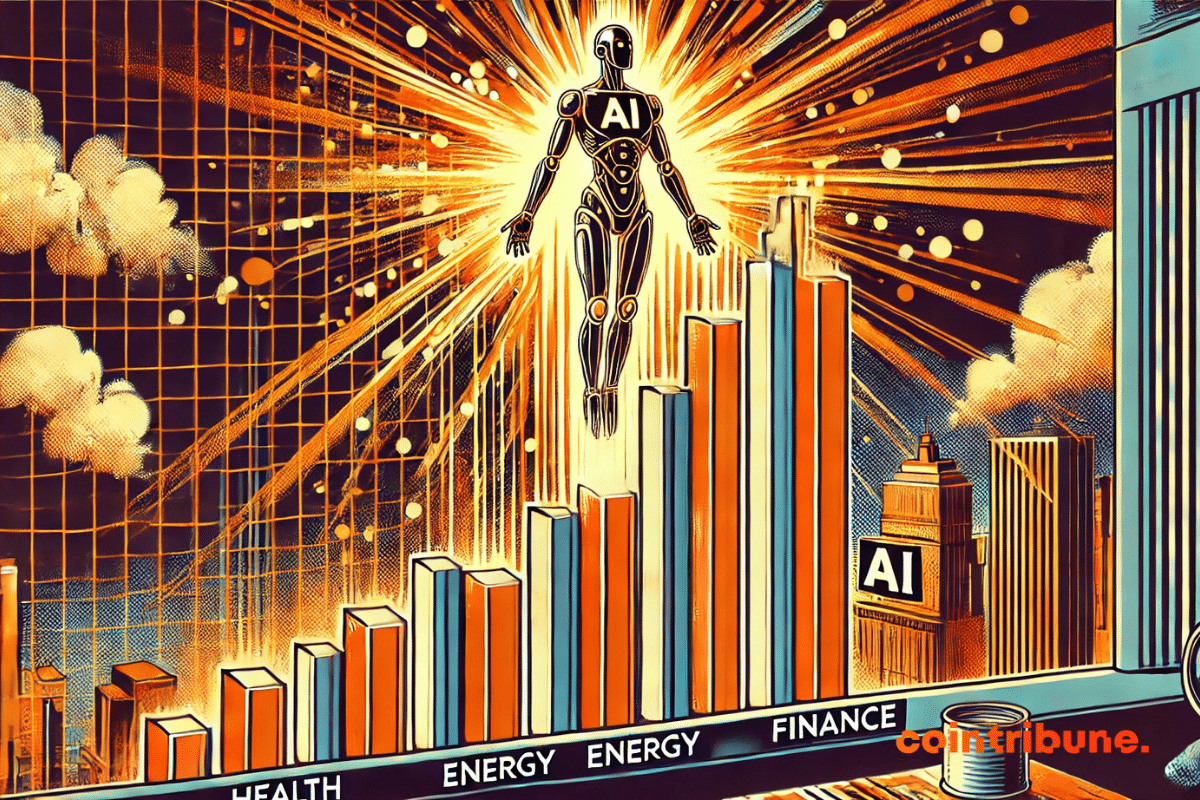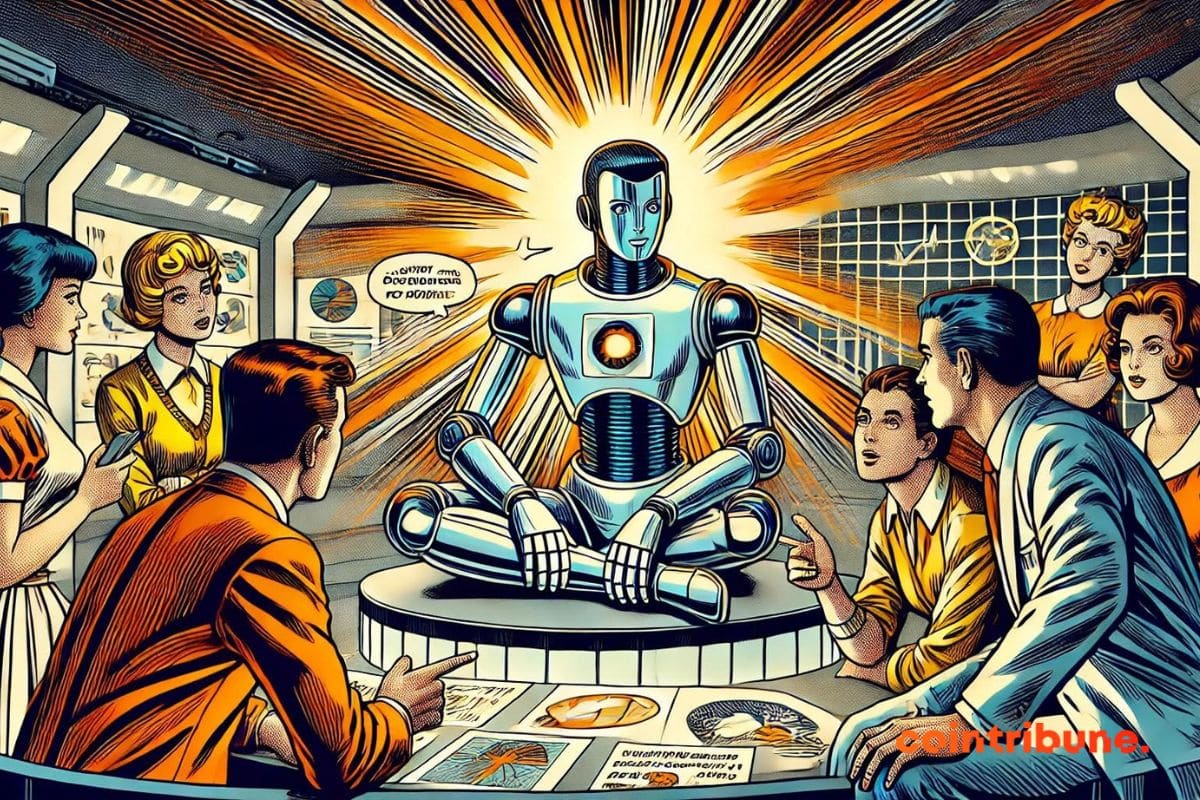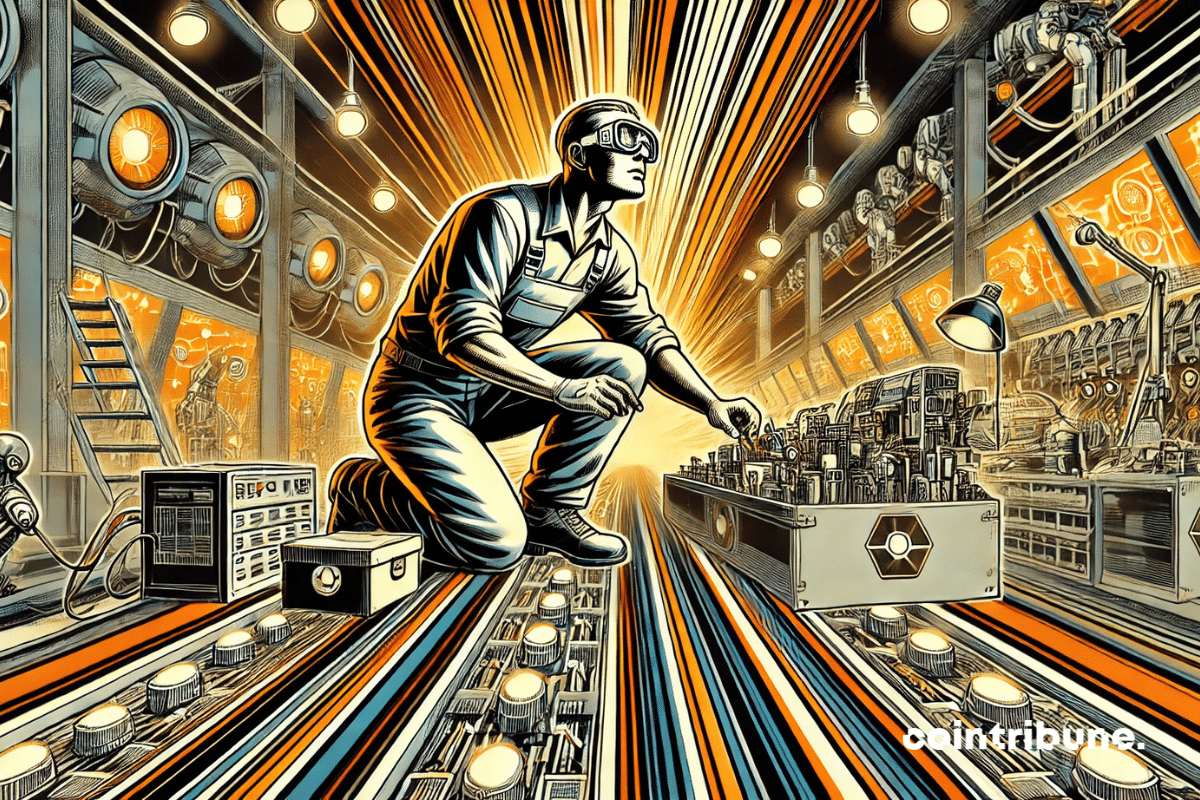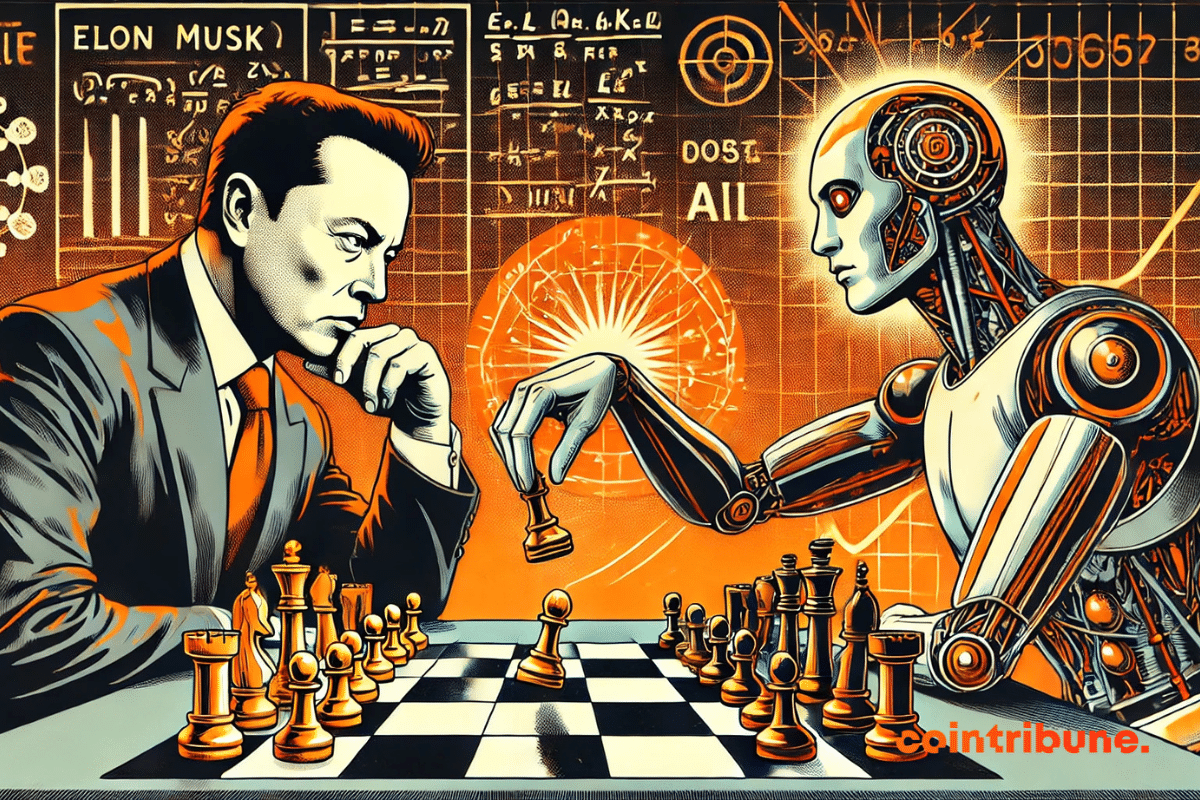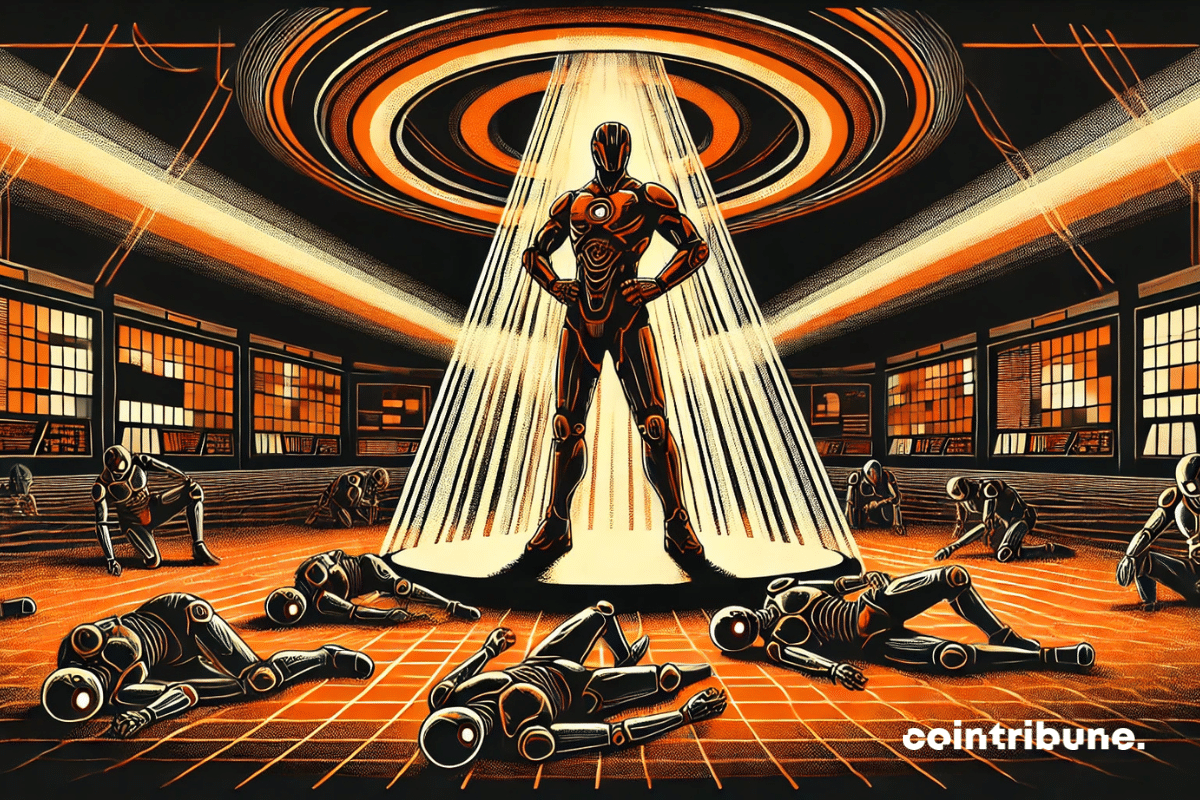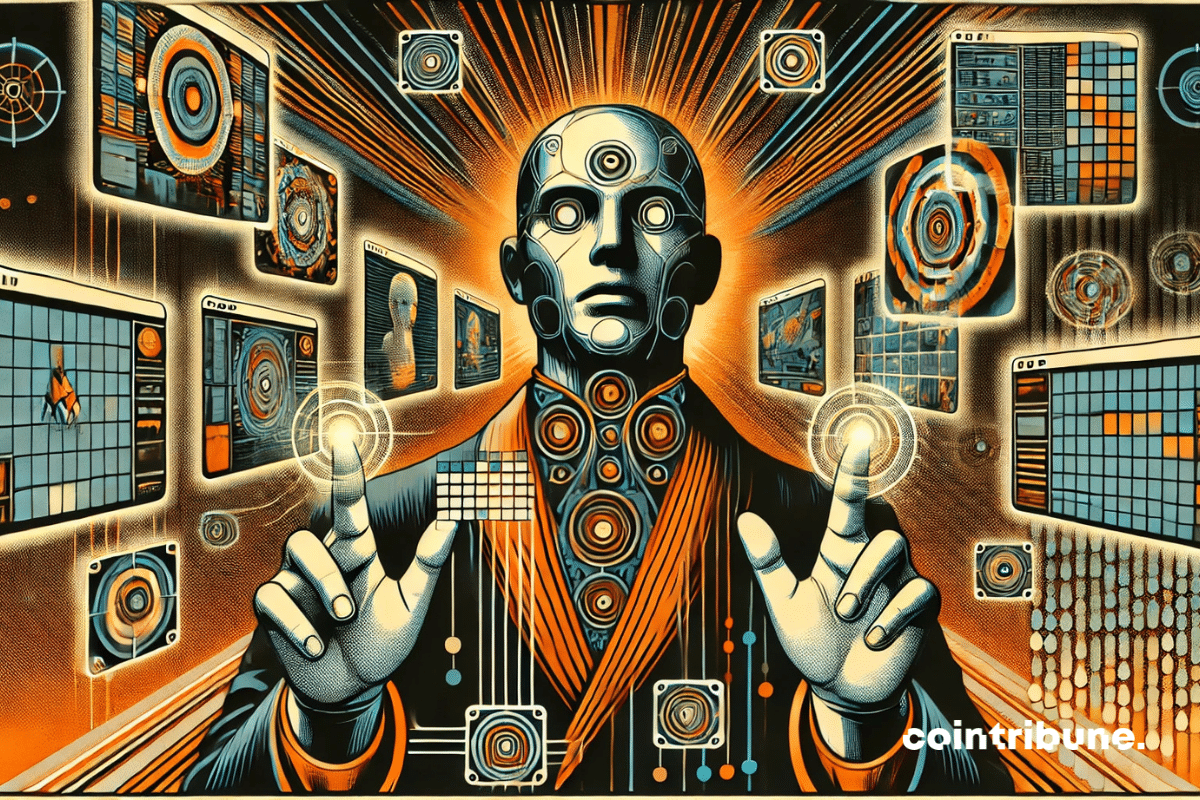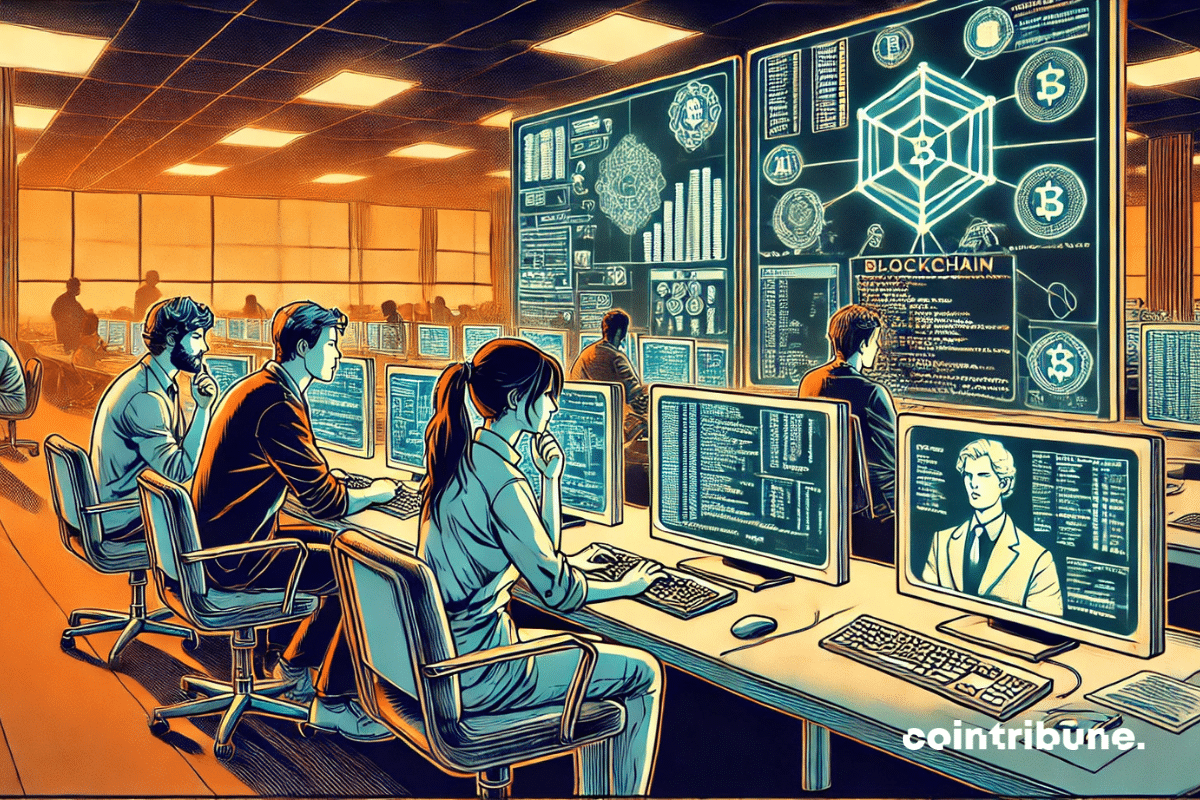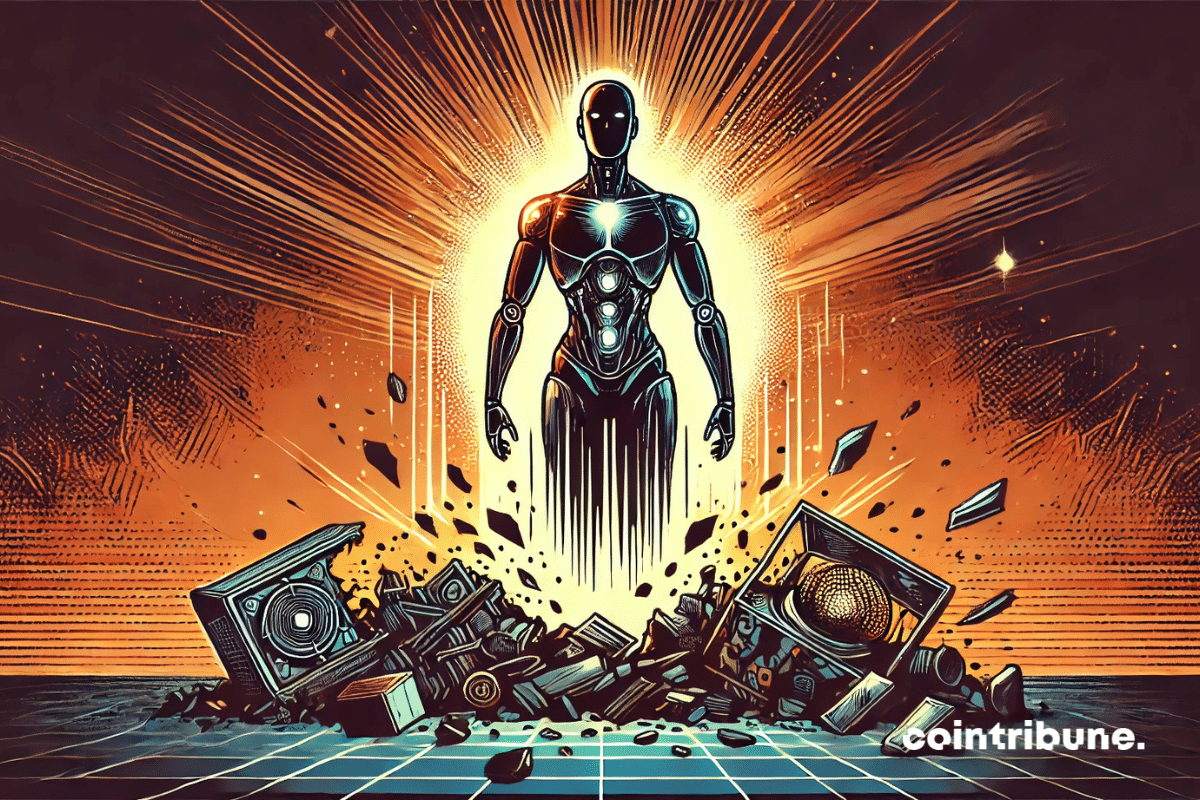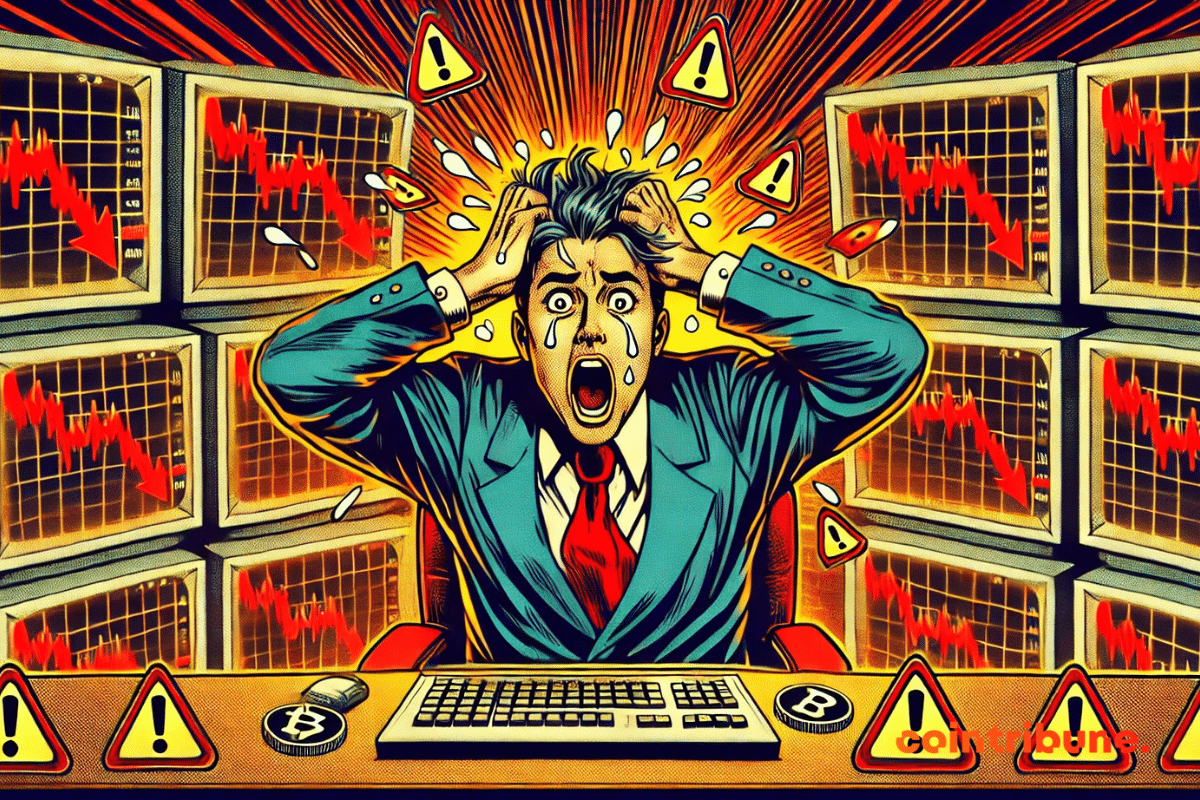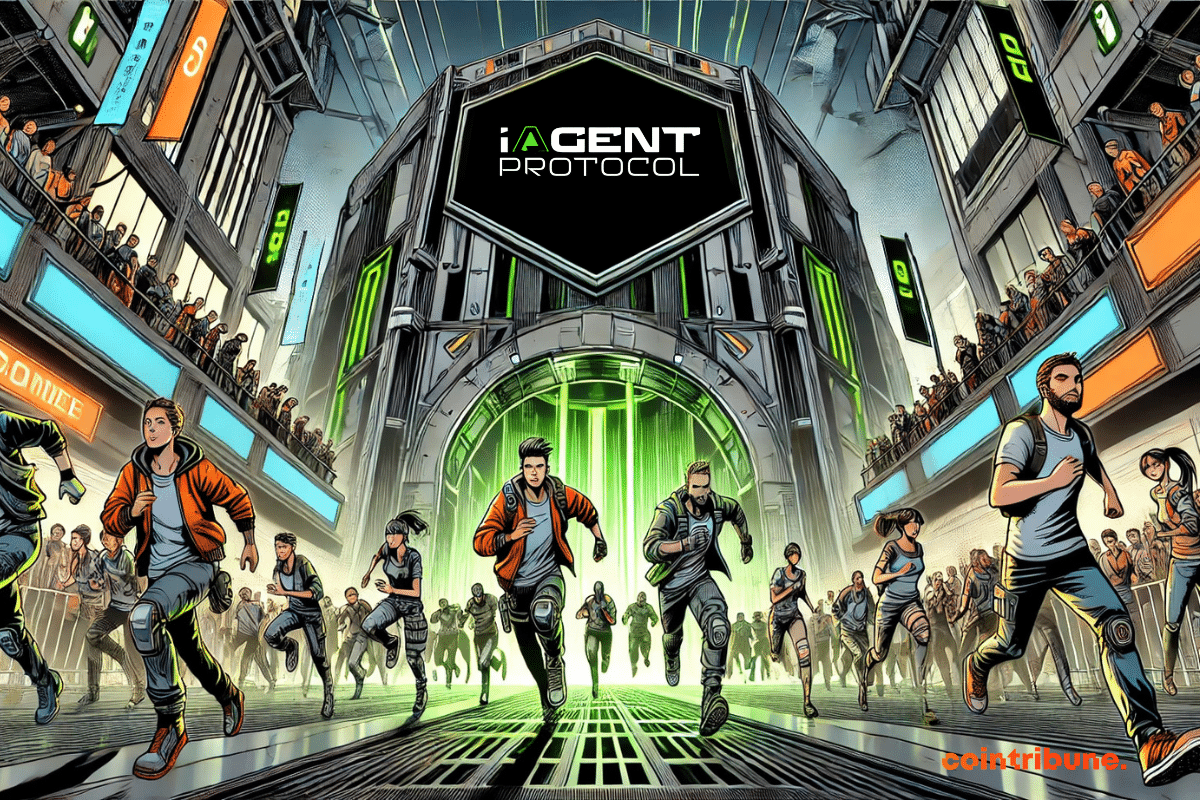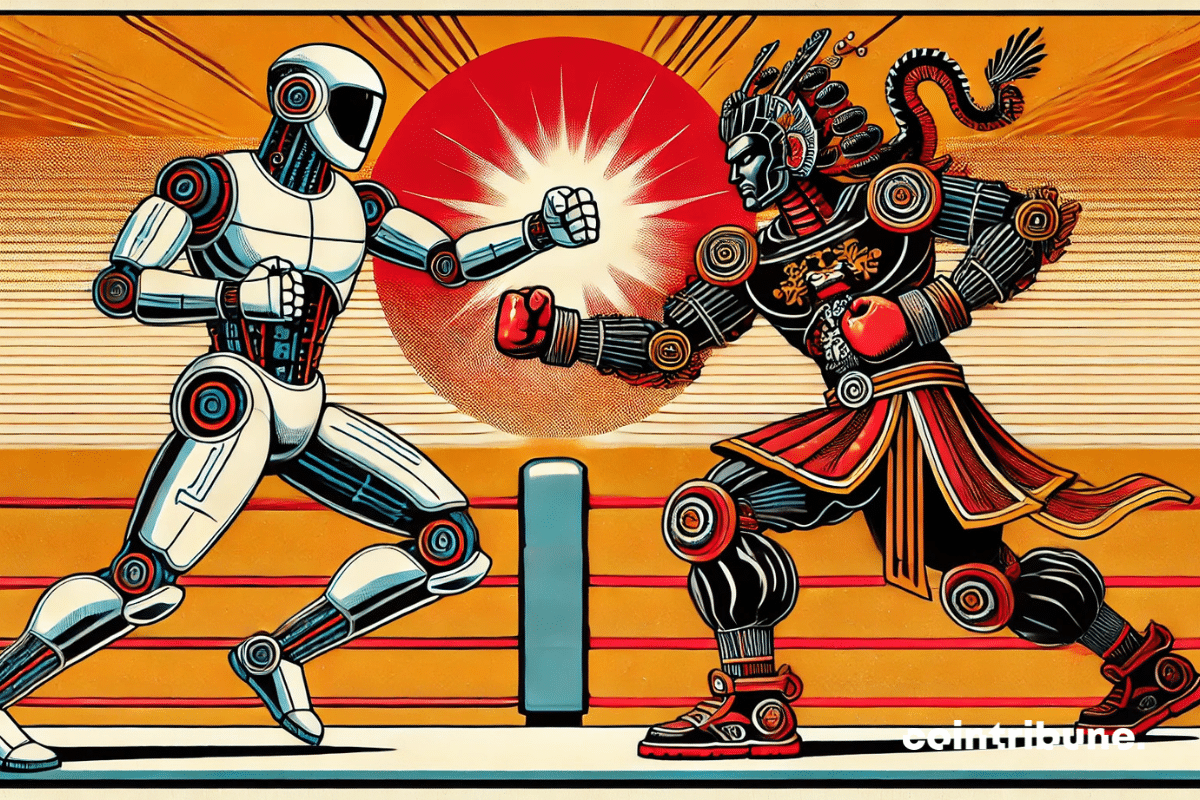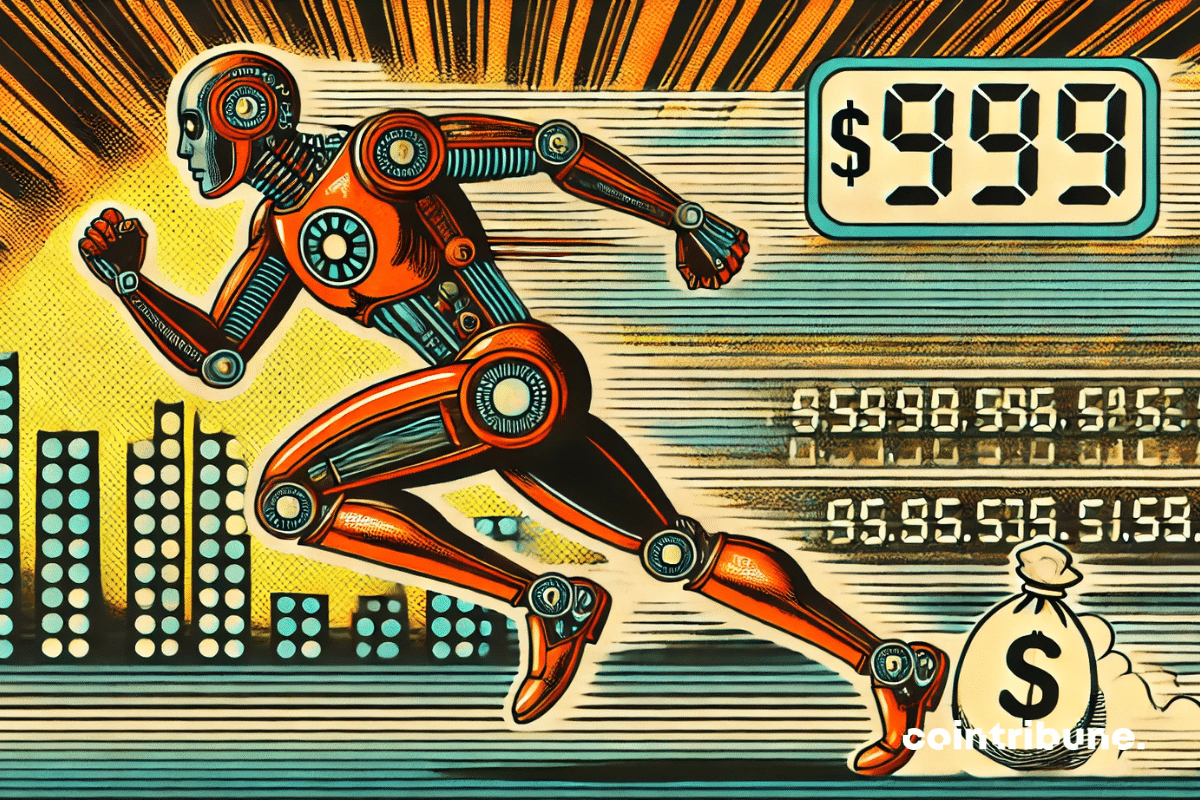Tether merges crypto and AI to create a P2P platform without APIs. Discover all the details in this article!
Theme Artificial Intelligence
Altman turns his coat and pulls out his benefactor's cape: OpenAI swears allegiance to its non-profit soul, while Musk screams about the heist of artificial intelligence...
Worldcoin lands in the United States. The goal: to scan your irises to prove that you are human. Behind this project is Sam Altman, the head of OpenAI, betting on biometric technology to create a unique and secure digital identity. With six sites opened in key cities, the gamble is on: to link blockchain, crypto, and eye recognition to reinvent access to digital services.
OpenAI has just rolled out major updates for ChatGPT, incorporating enhanced purchasing and search features that directly challenge Google's business model. This strategic evolution comes as the tool surpasses the billion weekly search mark.
The AI war is on! Huawei releases its Ascend 910D chip to directly challenge Nvidia. Discover the details in this article.
Blockchain, often perceived as a niche technology, could become a key player in redefining global job markets by 2030. A recent report highlights the untapped potential of this technology, capable of creating over 1.5 million jobs in the coming years, a growth comparable to or even exceeding that of AI (Artificial Intelligence).
Grok AI spits out a coin name, scammers seize it, CZ pockets 90 million fake dollars, and crypto rediscovers that artificial intelligence sometimes rhymes with very real scams.
What if saying "thank you" to an artificial intelligence cost millions? Sam Altman, CEO of OpenAI, reveals that polite phrases in requests made to ChatGPT weigh heavily on operational costs. Behind these seemingly innocuous human interactions lies an unexpected tension between friendliness and technical performance. This paradox raises critical questions about the design of AIs, their everyday uses, and the economic sustainability of an expanding model.
AI devours investors' dollars, leaving cryptos to nibble on the crumbs. OpenAI pocketed 40 billion, while Binance tries to keep up with 2 billion. Welcome to the AI rush.
In 2025, the crypto universe looks like a movie scene where the same actors return, despite expectations of a new script. According to CoinGecko, AI tokens and memecoins still capture 62.8% of investors' attention in the first quarter. This dominance raises questions: is the market destined to recycle its old successes, or does this persistence hide a subtle transformation?
OpenAI, the famous AI company, is reportedly developing a social network "like X," thus putting the AI giant on a direct collision course with Elon Musk. According to anonymous sources, this ongoing project combines ChatGPT's image generation tools with a social feed, allowing users to share their AI-generated image creations.
ChatGPT-4.5, OpenAI's latest innovation, has reached a significant milestone by passing the Turing test with an impressive success rate of 73%. This advancement demonstrates the ability of modern AIs to convincingly mimic human conversation, but also raises concerns regarding the risks of manipulation and fraud.
For the first time in its history, tech giant NVIDIA is launching the production of artificial intelligence supercomputers entirely in the United States. This strategic initiative aims to strengthen the American supply chain in the crucial AI sector.
Artificial intelligence feeds on data. But how far can it draw from our digital lives? The answer is taking a new turn in Europe. Meta has just obtained approval from European regulators to train its AI models on public content shared by its users. A decision that raises as many technological hopes as ethical questions.
OpenAI accuses Elon Musk of attempting to take control of AI through a fictitious takeover bid. An unprecedented legal battle begins!
Meta has just unveiled Llama 4, its most advanced artificial intelligence model to date. According to David Sacks, AI advisor at the White House, this technological advancement restores the United States' edge in the global competition for supremacy in AI.
Sentient Is Redefining AI Research With A Breakthrough Solution That Surpasses GPT-4o And Perplexity
Artificial intelligence is entering a new era. Sentient, a startup funded by Peter Thiel's Founders Fund, is launching Open Deep Search (ODS), an open-source AI search system that significantly outperforms market leaders like OpenAI's GPT-4o and Perplexity.
OpenAI raises $40 billion. Objective: generative AI, data centers, and a change of status to reach a $300 billion valuation. Details here!
Anthropic unveils the Model Context Protocol (MCP), an open-source standard that revolutionizes the connection between AI and business applications. This standardized protocol facilitates access for models like Claude to external data, paving the way for truly integrated intelligent assistants within workflows.
A French team secured third place at the prestigious Qubic 2025 Hackathon held in Madrid. Their project QuLang, which revolutionizes access to artificial intelligence on the Qubic blockchain, impressed the jury with its innovative approach to decentralized inference of large language models.
Google has just dropped a new bomb in the race for artificial intelligence (AI): Gemini 2.5. Presented as a "thinking" model, it does not merely regurgitate answers; it analyzes, reasons, and reflects before speaking. With a major advancement in coding, reasoning, and multimodality, Google hopes to catch up with OpenAI and its other rivals. But is it enough to disrupt ChatGPT, which remains comfortably at the top of the market with 43% market share?
Meta's artificial intelligence is finally available in Europe after a long tug-of-war with regulators. Meta AI, already integrated into the group's applications in the United States, is gradually rolling out in France and 40 other European countries. It is now appearing on WhatsApp, Instagram, Facebook, and Messenger, profoundly changing the interaction of users with Mark Zuckerberg’s group platforms.
Nvidia has triggered the "death cross": this dramatic name for a simple crossover of moving averages could well signal the end of a historic rally. But while Wall Street is concerned, AI cryptos just shrug their shoulders (and sometimes their prices). A three-part dive into this strange ballet.
Artificial intelligence has reached a decisive milestone with the rapid rise of ChatGPT, revolutionizing both the general public and businesses. However, in the face of the limitations of giant models, a new approach is emerging: intelligent agents. Capable of acting and interacting with their digital environment, they are redefining the future of AI by moving from simple text generation to the execution of concrete, autonomous tasks.
Nvidia unveils its new chips and triggers a crash in AI crypto tokens! We provide all the details in this article.
Web3 gaming is about to reach a decisive milestone with the Token Generation Event (TGE) of iAgent Protocol. Scheduled for March 18, 2025, this event is more than just a technological advancement! It marks the arrival of a new era where artificial intelligence (AI) becomes the driving force of gaming.
OpenAI has just announced the launch of new tools for developers, making it easier to create advanced AI agents. This initiative comes as Chinese startups, such as Monica and DeepSeek, are offering high-performing alternatives, often at a lower cost.
The Token Generation Event (TGE) of Runbot ($RBOT) is finally here! This innovative project, supported by GAINS, is revolutionizing automated trading through artificial intelligence (AI). As of today, March 10, 2025, $RBOT is listed on Uniswap. Find out why this launch has been so highly anticipated!
In a market as volatile as cryptocurrencies, every second counts. RunBot, with its state-of-the-art AI (artificial intelligence), is transforming automated trading by providing traders with powerful tools to maximize gains and reduce risks. Here's how you can enhance your trading experience with AI.
Artificial intelligence has just crossed a new milestone, and this time, a storm is brewing. GPT-4.5, the latest creation from OpenAI, is crushing the track with an outrageous ambition: to dominate by size. While 2025 is already overwhelmed by announcements of rival models – such as Claude from Anthropic or…
